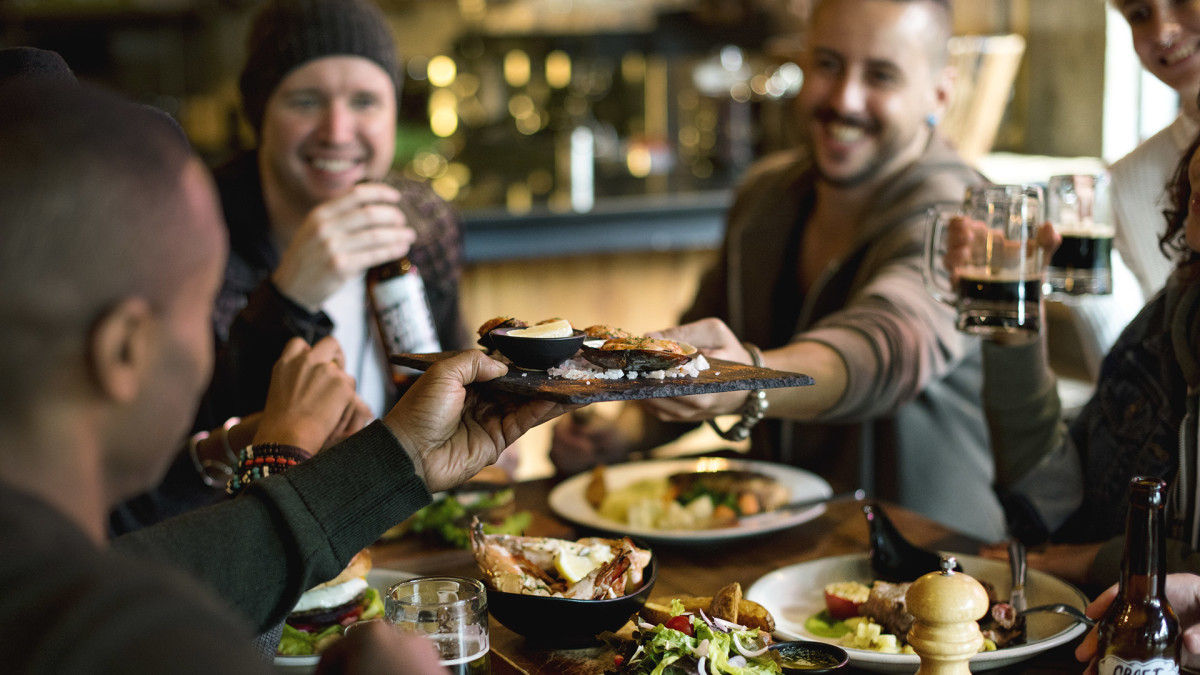
Restaurants normally fail because their operators make massive financial mistakes. You can go broke running a popular eatery if you get your food and labor costs wrong.
That happens fairly often because people often open restaurants based on passion instead of smart business logic. They go into the business because they have money and a dream.
Related: Owner of popular fast-food chain files Chapter 11 bankruptcy (again)
Those dreams often crash because even successful eateries operate on razor-thin profit margins. It's not enough to come up with a clever concept and a hot menu. You need to learn the unsexy part of running a business, the part that has nothing to do with cooking.
It's rare, however, that an established restaurateur with a long track record runs into these problems. The people who understand the business of running restaurants might shut down select locations or change concepts based on market demand, but they rarely fail outright.
But while they're not making huge mistakes like the restaurant owners who appear on the TV shows where famous chefs yell at them, established operators can fail. That's what has happened with a well-known chain that operates multiple concepts.

Image source: Shutterstock
Etta Collective files for Chapter 11 bankruptcy
Most of the recent restaurant chains that have filed for bankruptcy have been in the fast-food space. Restaurant Brands International (QSR) has suffered as multiple Burger King and Popeye's franchise operators have filed for Chapter 11 bankruptcy.
That's largely a product of the struggles created by the covid pandemic. RBI fell behind chief rival McDonald's because it had not invested as heavily in digital and delivery, which left the company ill-equipped to handle the shift in business caused by pandemic-related shutdowns.
Smaller chains, however, felt the same pain. In fact, for restaurants built around a sit-down model, it was a brutal period where bills piled up while sales tanked.
Etta Collective, a small chain that operates multiple concepts in Chicago, Arizona and Los Angeles has closed several restaurants and has filed for Chapter 11 bankruptcy.
The chain closed its namesake restaurant in Los Angeles last year and abruptly shut down a Chicago-area restaurant, Sophie's, earlier this year, Now, after defaulting on a $2.5 million loan, the company's owner, restaurateur David Pisor, made the bankruptcy filing.
Etta Collective hopes to survive
Pisor's Etta collective runs a number of different concepts including its namesake restaurants, a bakery cafe, Alston House, a high-end steakhouse, and Kari, an upscale sushi concept. The chain also has Marilyn's, a planned concept that has not opened.
"Etta Collective pushes the boundaries of hospitality," the company says on its website. "We create iconic brands that dominate our respective markets by delivering on great food, great service and great experiences. From hotels to private clubs, from quick serve to white tablecloth dining, we build popular and profitable brands."
More on Bankruptcy:
- Owner of popular fast-food chain files Chapter 11 bankruptcy (again)
- Popular clothing retailer faces Chapter 11 bankruptcy, cash crisis
- Popular brewery goes from Chapter 11 bankruptcy to liquidation
Pisor has said that the bankruptcy filing was made in order to help the company continue to operate.
“We have made a proactive decision to commence this strategic reorganization process with the cooperation of our lender, who has agreed to work with us so that we can come out of this process even stronger than before," Restaurant Business reported.
The bankruptcy process could include a sale of the brand as the investor John Leahy has emerged as a stalking-horse bidder for the company's assets.
“Our aim is to best position the Etta brand for future success,” Pisor said in a statement. “By filing for protection under Chapter 11, we will be able to restructure our financial position while continuing our daily operations and keeping our locations open.
"As has already happened in our Scottsdale location, we predict that we will emerge stronger both operationally and financially.”
That's a prediction and a hope for the chain, but an auction or Chapter 7 liquidation remains possible if challengers emerge to Leahy's bid for the brand.
Related: Veteran fund manager picks favorite stocks for 2024







